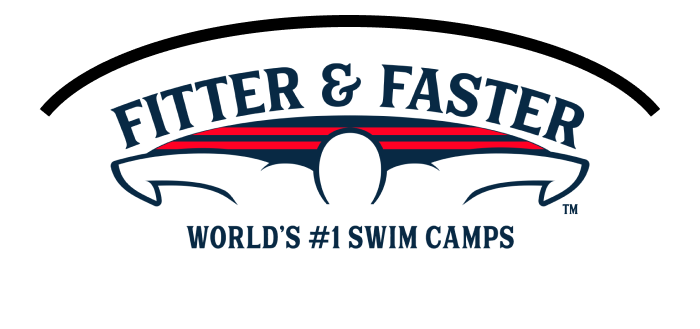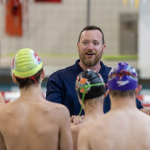This post is written by guest blogger & Fitter & Faster Partner:
Kyle Sockwell

Summer might sound like a break for most people, but for competitive swimmers, it’s sometimes the exact opposite. Instead of sleeping in and spending afternoons lounging at the pool, you’re up at 5:00 AM training in it… and then probably going back again later.
Add meets, double workouts, dryland, and the general desire to, well, relax a little, and it’s no surprise things can feel a little overwhelming.
Let’s talk about how to manage the grind, keep your stress to a minimum, and make the most of the summer season without burning out.
1. The Summer Swim Grind is Real
First things first—if you’re a competitive swimmer, the summer isn’t a break. It’s more like flooring it.
- Morning practices start early, often before most people are even thinking about waking up.
- Doubles are common. You might have morning practice, a lift, and then afternoon practice on some days with everyone in between being reserved for recovery. It can certainly feel like an all-day activity.
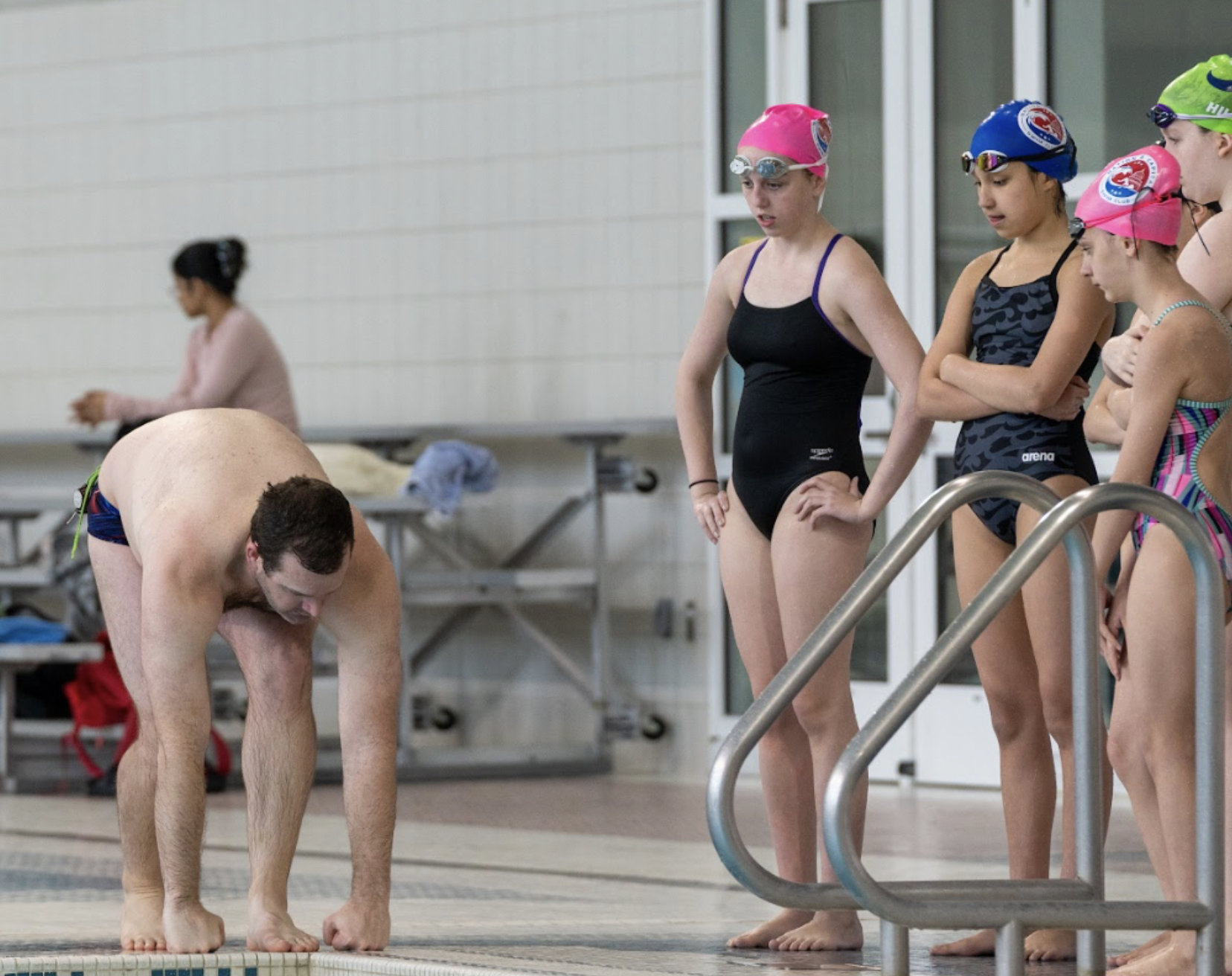
- Travel meets can mean weekends are no longer your own.
- And the stakes? Higher than ever. Summer championship meets (Zones, Sectionals, Junior Nationals, etc.) are often the biggest ones of the year.
- The pool is longer than normal too. 50m is a long way.
That’s a lot of pressure, and it’s totally normal to feel the weight of it.
2. Managing Mental Stress and Performance Anxiety
Even if your training is on point, mental stress can sneak up on you fast. You might feel nervous about qualifying for a certain meet or worried about letting your coach or teammates down. You might even start to question whether you’re cut out for the sport at all.
Spoiler alert: You are.
Here’s how to stay locked in:
- Acknowledge the pressure. Pretending you’re not stressed doesn’t actually help. It’s okay to feel nervous. In fact, it means you care.
- Break goals into pieces. Instead of stressing about dropping 5 seconds in your 200 IM, focus on improving both your strengths AND weaknesses. Weaknesses are just opportunities to get faster.
- Talk it out. Coaches, teammates, parents—they’re in your corner. Share what you’re feeling. You’d be surprised how many people feel the same and boyyyyy can that be comforting.
- Remember your “why.” Write it down somewhere. Why do you swim? What do you love about it?
3. Balance Training with Everything Else (aka, Having a Life)
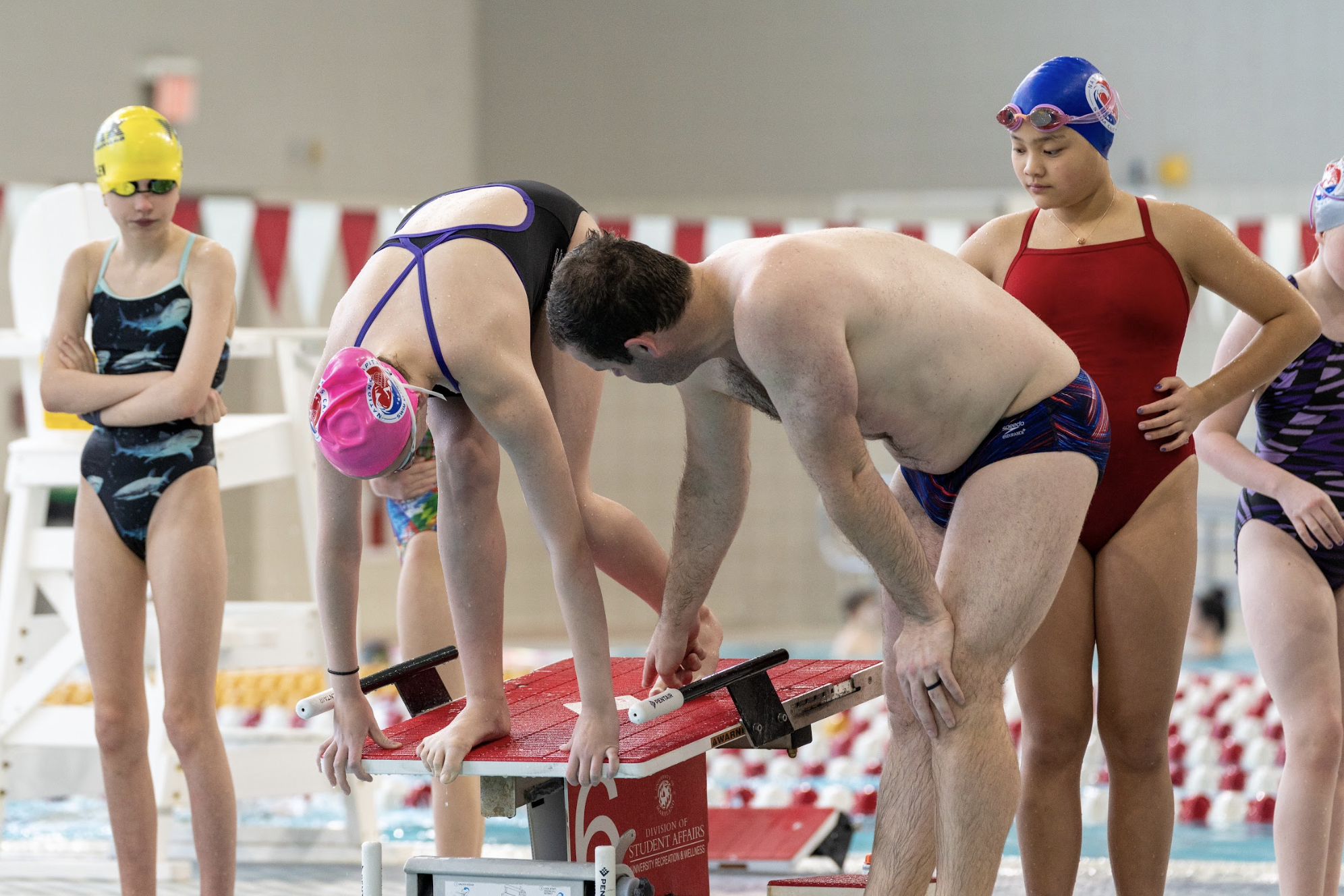
Here’s a fun challenge: try being a full-time athlete while also being a full-time friend, sibling, student, child, and occasionally just a person who wants to lie on the couch and watch YouTube…
…I’d recommend Kyle Sockwell, he’s got INCREDIBLE swimming content and I hear he’s absolutely cooking right now. Hahaha. Haha. Ha…
Balance is hard, but it’s not impossible:
- Plan your week. It doesn’t have to be minute-by-minute, but try to know what’s coming. Swimming isn’t the only thing that matters and sometimes doing something outside of the sport can make leave you more refreshed and ready to train or even race.
- Be present. If you’re hanging out with friends, be there. Don’t stress about practice later. And when you’re at practice, do the same so you can leave it in the pool afterward.
- Say no sometimes. It’s okay to skip the third movie night of the week if your body needs rest. You’re not missing out, you’re taking care of yourself. Watch Kyle Sockwell’s new YouTube video instead. Maybe. Idk. Up to you.
- Make space for fun. Even if it’s just 30 minutes to go get ice cream or play video games, those little breaks matter and they’ll help you be more present when practice inevitably shows back up.
4. Take Recovery Seriously
Sleep, food, hydration, rest…they shouldn’t be optional.
- Sleep is a superpower. Try to get 8–10 hours a night. If you’re waking up at 5 AM, that means you’re hitting the pillow way earlier than most, if not all, of your friends. That’s not lame, it’s smart and they’ll enjoy watching you on TV in 2028 from the couch. Boom roasted.
- Fuel up. Eat carbs, proteins, fats, fruits, veggies, snacks—yes, even snacks. Don’t skip meals. You’re burning a ton of calories, and your body needs fuel to recover.
- Drink more water than you think you need to. Especially in the heat. Dehydration = fatigue, poor recovery, and a higher risk of injury.
- Stretch and roll. Five minutes post-practice with a foam roller or band makes a huge difference over the course of a long summer season. If you really want to act like a pro, 5-10 minutes before is big time as well.
- Rest days exist for a reason. If your coach gives you one, take it. Don’t sneak in an extra jog or gym session. Let your body chill so you can be fully recovered and ready to get back to it at a whole new level.
5. When Burnout Starts Creeping In…
Even when you’re doing all the right things, you might hit a wall. That’s normal and it doesn’t make you weak.
Signs of burnout might include:
- Dreading practice (more than usual)
- Feeling constantly tired no matter how much you sleep
- Getting sick more often
- Losing motivation or snapping easily at people
- Not enjoying the sport anymore
Here’s what to do:
- Go to a swim camp. A swim camp, even if just for the day can be a great way to re-light that fire you seem to have lost. Fitter & Faster Swim Camps are lead by swimmers who have been there and done that at the highest levels in the sport. Don’t let their accolades intimidate you though, they bring a whole lot of fun to the camps as well.
- Check in with yourself. What’s going on outside of swimming? Are there stressors piling up?
- Tell someone. Don’t wait until you’re totally fried. Coaches can adjust your workload if they know what’s going on.
- Switch it up. Try a new workout, go for a swim in a lake (with supervision!), or do a yoga session instead of dryland.
- Focus on a weakness. Trying to get good at something you’re not good at can be a whole lot of fun if you give yourself some grace. Going from a 1:20 in the 100 freestyle kick with a board to 1:05 is a win that can keep you locked in and more focused. Now move onto the next thing. Getting good at something you previously weren’t good at is fun.
- Remember: It’s okay to need a break. Swimming is part of your life, but it’s not your whole life. Taking a breather doesn’t mean you’re quitting.
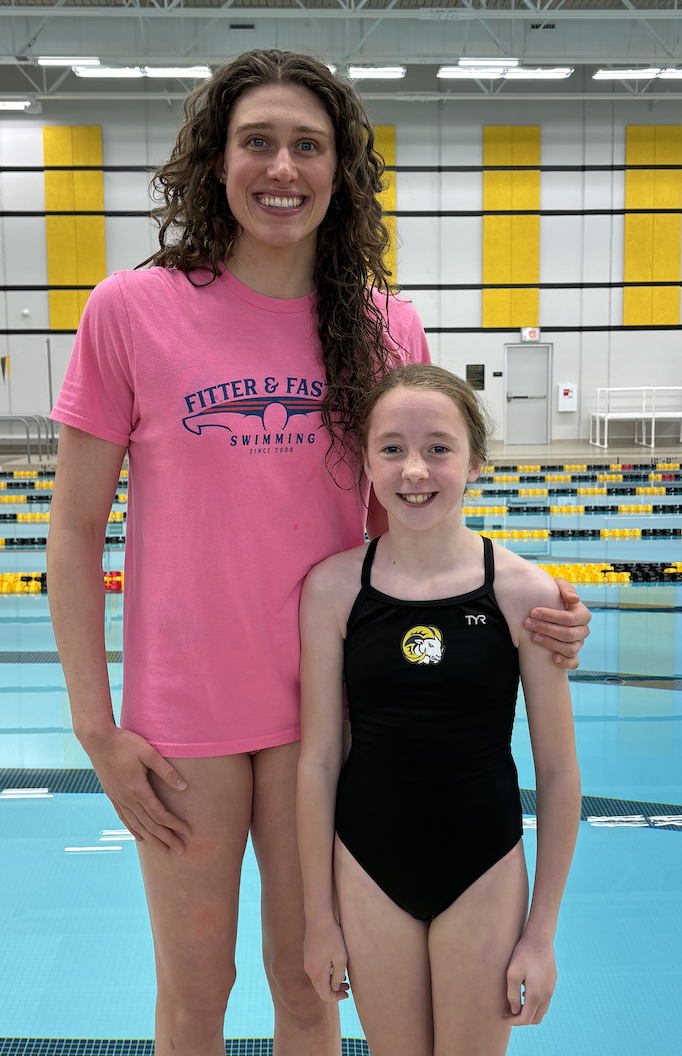
6. Celebrate the Wins (Big and Small)
Summer training can feel like one giant treadmill sometimes. That’s why it’s important to stop and celebrate your wins.
- Dropped a tenth? Celebrate it.
- Crushed a set you used to hate? Celebrate it.
- Survived a brutal week of training? Get a milkshake or something.
Recognizing your progress keeps things fun, helps you build confidence, and reminds you how far you’ve come. Swimming is hard. Celebrate the fact that you keep showing up.
7. Remember Why You’re Doing This
It’s easy to get caught up in chasing cuts and best times, but remember what brought you here in the first place.
Maybe it was the nervous energy you get before a race, or racing your best friend, or that first heat winner in summer league when you were seven. It could be the teammates who’ve become your second family. Whatever it is keep it close.
This sport asks a lot of you, but it gives a lot back too: grit, confidence, resilience, lifelong friendships, and a relationship with your own potential that few people ever really find that’ll pay dividends later in life.
You’ve got this. One practice, one meet, one season at a time.
Swimming to the moon.


